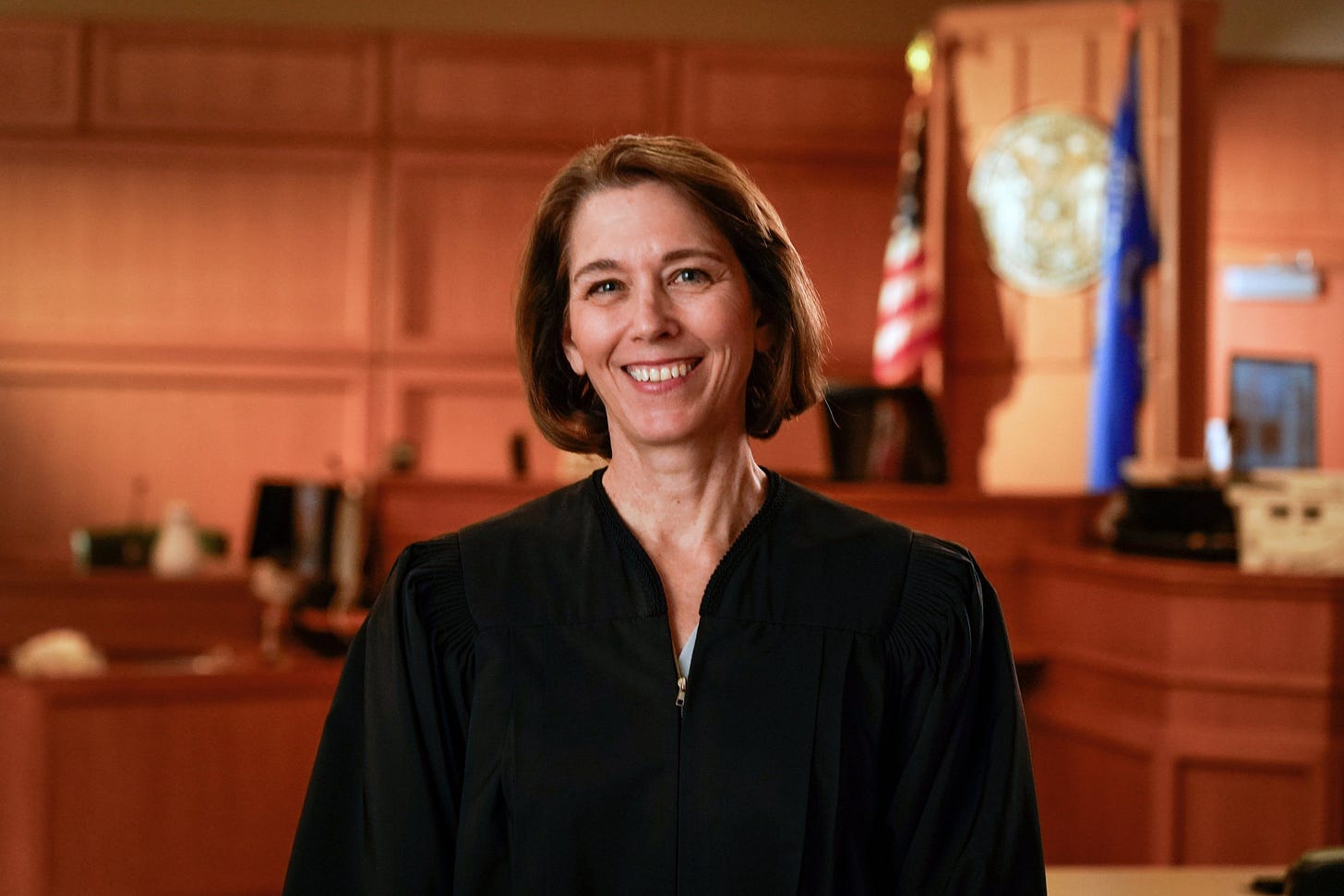My Fellow Democracy Defenders,
On April 1, Wisconsinites will vote for a Supreme Court Justice. Public Servant endorses Judge Susan Crawford. She will protect democracy in a critical swing state and could break the tie to end gerrymandering to help Democrats regain a majority in the House!
American democracy stands at a crossroads, grappling with voter suppression, partisan polarization, and systemic distrust in institutions. In this pivotal moment, Wisconsin—a historic bellwether state—has the power to steer the nation toward renewal. Susan Crawford’s campaign represents not just a choice for progress, but a lifeline for democratic integrity. By championing voting rights, defending election integrity, and bridging divides, Crawford’s leadership offers Wisconsinites a chance to fortify democracy’s foundations, setting a transformative precedent for the nation.
1. Expanding Voting Rights: Reversing Wisconsin’s Legacy of Exclusion
Wisconsin’s recent history of strict voter ID laws and gerrymandered maps has eroded access to the ballot box, particularly for marginalized communities. In 2011, the state’s redistricting plan cemented one-party control, earning the nickname “America’s most gerrymandered state.” These policies, compounded by the closure of polling places in urban areas, suppress voices and undermine representative governance.
Susan Crawford’s platform directly confronts these barriers. She advocates for automatic voter registration, expanded early voting, and the restoration of voting rights to formerly incarcerated citizens. By pushing to overturn gerrymandered maps through independent redistricting commissions, Crawford aligns with reforms that have revitalized democracy in states like Michigan. Her policies ensure every Wisconsinite can participate freely—a critical step in rebuilding trust and inclusivity in elections.
2. Safeguarding Election Integrity Against Misinformation
The aftermath of the 2020 election saw Wisconsin embroiled in baseless fraud claims, fueling distrust and even threats against election workers. Nationally, disinformation campaigns have weaponized falsehoods to destabilize faith in democratic processes.
Crawford’s plan combats this crisis by investing in secure, transparent voting infrastructure while expanding access to mail-in and early voting. She supports rigorous auditing processes and partnerships with tech platforms to counter lies without stifling free speech. Moreover, her commitment to civic education initiatives empowers voters to discern facts from fiction. By coupling accessibility with accountability, Crawford addresses both the technical and cultural vulnerabilities exploited by bad actors.
3. Bridging Divides Through Pragmatic Leadership
Hyper-partisanship has paralyzed legislatures and turned governance into a zero-sum game. Wisconsin’s political climate reflects this national rift, with stark urban-rural divides and legislative gridlock.
Crawford’s record of bipartisan collaboration—from working with rural lawmakers on broadband expansion to negotiating criminal justice reforms with conservatives—demonstrates her ability to transcend tribalism. She rejects demonization, focusing instead on shared goals like economic equity and healthcare access. This approach mirrors the pragmatism of leaders like Wisconsin’s former Governor Tommy Thompson, whose cross-aisle efforts advanced landmark policies. In a fractured political landscape, Crawford’s coalition-building reignites the ethos that democracy requires compromise.
4. Strengthening Institutions Against Authoritarianism
Democracy’s resilience hinges on robust institutions. Yet gerrymandered legislatures, unethical lobbying, and attacks on judicial independence have weakened Wisconsin’s checks and balances.
Crawford’s agenda includes stringent ethics reforms, campaign finance transparency, and protections for nonpartisan election officials. She also champions judicial appointments based on merit rather than ideology, safeguarding courts from politicization. These measures draw inspiration from states like Arizona and California, where similar reforms have curbed corruption. By reinforcing institutional integrity, Crawford ensures that power remains accountable to the people—not partisan interests.
Conclusion: Wisconsin’s Legacy as a Democratic Beacon
Wisconsin’s storied progressive legacy—from “Fighting Bob” La Follette’s reforms to the Act 10 protests—proves its capacity to lead national change. Susan Crawford embodies this tradition, offering a blueprint to heal democracy’s fractures. Her victory would resonate beyond state lines, proving that inclusive policies, ethical governance, and unity can prevail over division.
The 2024 election is not merely about candidates; it is a referendum on democracy itself. By electing Susan Crawford, Wisconsin can reject authoritarianism and reaffirm that every voice matters. In doing so, the state will light a path for America to follow—one ballot, and one act of courage, at a time.
The time to act is now. For Wisconsin, and for the nation, Susan Crawford is democracy’s best hope.




No comments:
Post a Comment
Note: Only a member of this blog may post a comment.